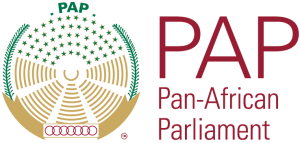
Pan-African Parliament (PAP)
Parliament Panafricain
Parlamento Pan-africano
Search Open Yearbook
This information is part of the Open Yearbook, a free service of UIA's subscription-based Yearbook of International Organizations (YBIO). It includes profiles of non-profit organizations working worldwide in all fields of activity. The information contained in the profiles and search functionality of this free service are limited.
The full-featured Yearbook of International Organizations (YBIO) includes over 77,500 organization profiles, additional information in the profiles, sophisticated search functionality and data export. For more information about YBIO, please click here or contact us.
The UIA is a leading provider of information about international non-profit organizations. The aim of the Open Yearbook is to promote the activities of international non-governmental organizations (INGOs) and intergovernmental organizations (IGOs).
Contact Details
URL: https://pap.au.int/
Facebook: https://www.facebook.com/panafricanparliament/
Twitter: https://twitter.com/AfrikParliament
LinkedIn: https://www.linkedin.com/company/pan-african-parliament/
Founded
2002
History
Available with paid subscription only.Aims
Facilitate effective implementation of policies and objectives of the OAU/AEC and, ultimately, of the African Union; promote the principles of human rights and democracy in Africa; encourage good governance, transparency and accountability in member states; familiarize the peoples of Africa with objectives and policies aimed at integration of the African Continent within the framework of the African Union; promote peace, security and stability; contribute to a more prosperous future for the peoples of Africa by promoting collective self-reliance and economic recovery; facilitate cooperation and development in Africa; strengthen solidarity and build a sense of common destiny among the peoples of Africa; facilitate cooperation among regional economic communities and their parliamentary fora.
Events
20 past events available with paid subscription only.Structure
Available with paid subscription only.Languages
Available with paid subscription only.Annual Budget
Available with paid subscription only.Finance
Available with paid subscription only.Relations with Inter-Governmental Organizations
Works in close cooperation with parliaments of the Regional Economic Communities and the national parliaments or other deliberative organs of member states. Agreement with: F-XF2508 - Interparliamentary Assembly of Member Nations of the Commonwealth of Independent States (IPA CIS). Cooperates with: F-XE8849 - Parliamentary Assembly of the Council of Europe (PACE). Agremeent with: D-XD0435 - Council of Europe (CE). E-XM1176 - Arab Parliament is observer. Links with: E-XE3628 - United Nations African Institute for Economic Development and Planning.
Members
Available with paid subscription only.Type I Classification
Available with paid subscription only.Type II Classification
Available with paid subscription only.UIA Org ID
XF6545
** UN SDGs are linked to the subject classification.
← return to your search page to find additional profiles.
UIA allows users to access and make use of the information contained in its Databases for the user’s internal use and evaluation purposes only. A user may not re-package, compile, re-distribute or re-use any or all of the UIA Databases or the data* contained therein without prior permission from the UIA.
Data from database resources may not be extracted or downloaded in bulk using automated scripts or other external software tools not provided within the database resources themselves. If your research project or use of a database resource will involve the extraction of large amounts of text or data from a database resource, please contact us for a customized solution.
UIA reserves the right to block access for abusive use of the Database.
* Data shall mean any data and information available in the Database including but not limited to: raw data, numbers, images, names and contact information, logos, text, keywords, and links.